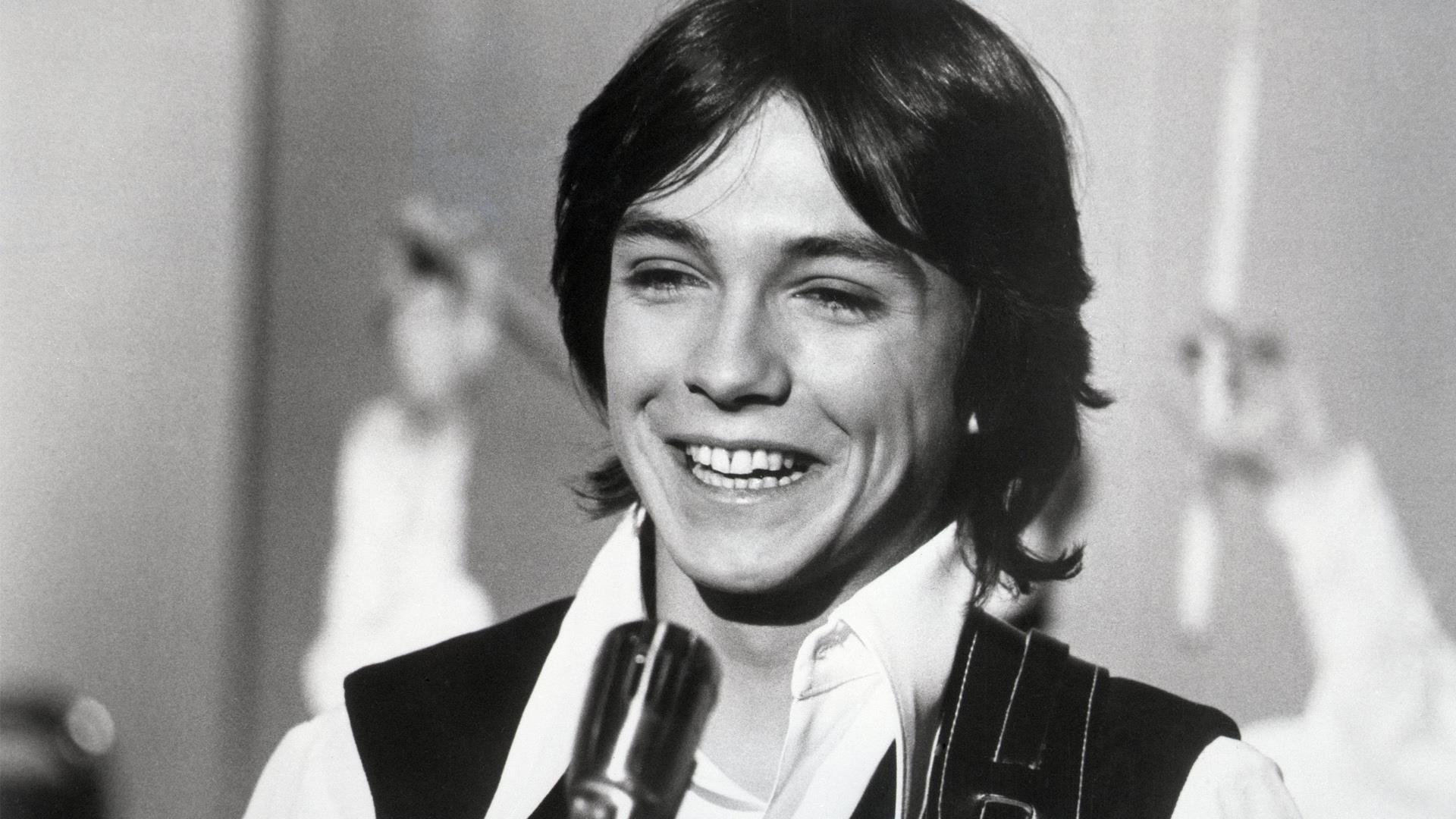
“The Puppy Song” is a small, tender dream set to music—David Cassidy sounding like he’s holding hope carefully, as if it might run away if he grips it too tight.
There are pop records that explode into your life, and then there are the ones that pad in softly—almost shy, like a loyal dog trailing close behind your shadow. “The Puppy Song” belongs to the second kind. In 1973, David Cassidy released it not as a lone statement, but as part of a double A-side single with “Daydreamer”, and that pairing mattered: two visions of softness, two different shades of longing, pressed onto the same small piece of vinyl.
The “ranking at launch” is clear and historically fixed: “Daydreamer / The Puppy Song” reached #1 on the UK Singles Chart and stayed at #1 for three weeks, first charting on 13 October 1973. It wasn’t a passing wave, either—the Official Charts record shows a full run in the listings, and the single became one of those signature UK moments when Cassidy’s voice felt not just popular, but part of the season. In the United States, the same release charted more modestly—peaking at #48 on the singles chart, a reminder that Cassidy’s early-’70s story often had two different endings depending on which side of the Atlantic you were standing.
But the real story of “The Puppy Song” begins earlier, with a songwriter who specialized in making innocence feel complicated. The song was written by Harry Nilsson and first appeared on Nilsson’s 1969 album Harry. Its origin has one of those wonderfully human music-history twists: Nilsson wrote it at Paul McCartney’s request, intended for Mary Hopkin (who recorded it for her debut album), before Nilsson later recorded his own version. The lyric’s opening thought—“Dreams are nothin’ more than wishes…”—isn’t just a pretty line; it became a kind of motto that echoed forward into Cassidy’s world, too.
Because Cassidy didn’t just sing “The Puppy Song”—he built an era around its emotional temperature. Both “Daydreamer” and “The Puppy Song” appear on his 1973 album Dreams Are Nuthin’ More Than Wishes, whose very title is drawn from that lyric. And in the UK, that album itself reached #1, tying the single to a broader moment when Cassidy’s gentler material—less swagger, more sincerity—was being embraced at full volume.
What makes David Cassidy’s “The Puppy Song” feel so enduring isn’t chart muscle. It’s the emotional posture. The song’s metaphor—someone longing the way a child longs for a puppy—could have turned cute or disposable in the wrong hands. Cassidy, instead, makes it quietly profound. He sings with a kind of open-hearted restraint, as if he knows that wanting something purely is also a risk: you’re admitting you can be disappointed. That’s the ache under the sweetness. Not tragedy—just vulnerability, stated plainly.
And there’s a deeper irony that gives the song its sting of truth. Cassidy, at this point, was surrounded by noise: fame, expectation, the endless projection of what people wanted him to be. “The Puppy Song” offers the opposite world—a world where the most complicated thing is simply asking to be loved back with the same gentleness you’re offering. No games, no armor, no clever exit. Just that childlike honesty that adulthood often trains us to hide.
So when you return to “The Puppy Song” now, it doesn’t feel like a novelty from 1973. It feels like a reminder of a rarer emotional language: softness without embarrassment. And that may be why the record still lands—because even after decades of louder songs, people still recognize the quiet courage in a voice willing to say, in essence:
I don’t want power.
I don’t want control.
I just want to be chosen—faithfully, kindly, and for real.